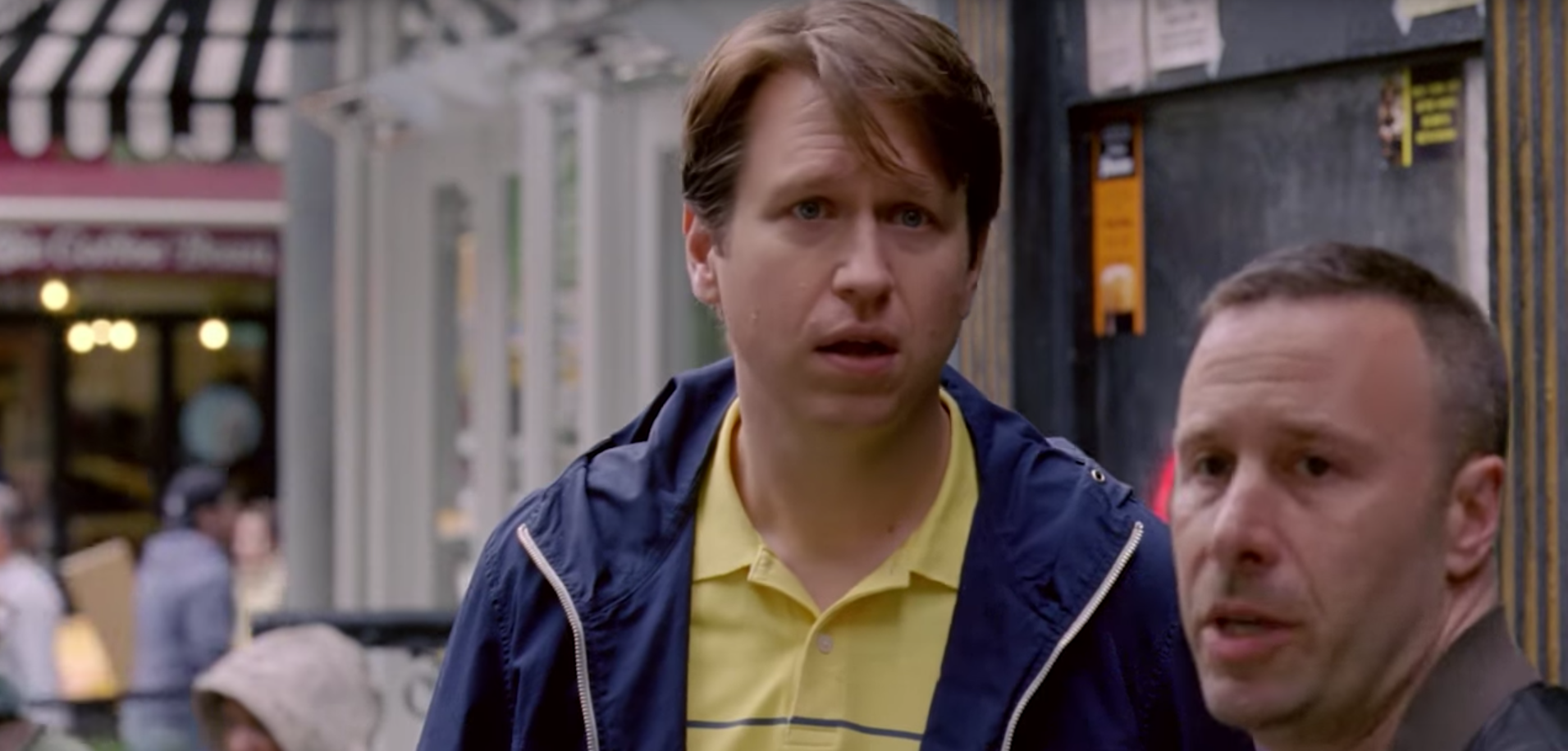Pete Holmes and Artie Lange sit in a grungy New York City pizza joint — the kind that probably has ample grease on the pizza, the floor and somehow the ceiling. Lange, a comedy veteran, gives some sage advice on the industry from his side of their squat table.
“It’s not all it’s cut out to be,” he says. “It’s not all the good shit you think it is.”
This line from the show’s premiere seems to encapsulate the message of Crashing, a new HBO series created by and starring Pete Holmes and produced by Judd Apatow. The series, which premiered Feb. 19, follows Holmes playing a semi-fictionalized version of himself as he attempts to make it in the comedy industry while going through a messy divorce.
A few days after the premiere, The Diamondback had a chance to speak with Holmes and Apatow.
Holmes wanted to create a series that showed comedic desperation at its finest and gave a face to those trying to succeed despite the universe’s best efforts to tear them down.
“One of the messages of the show is that if it sucks, you’re doing it right,” he said. “Which I think is a fun thing to share with people, regardless of whatever dream they’re pursuing.”
The series displays a trend typical of the comedy scene — a young comedian forced to crash on older comedians’ couches to play late shows in the city. In the first episode, Holmes meets Lange, a comic also playing himself, and is shocked the legend is not drenched in a warm glow of happiness and success.
As it turns out, much of the pizzeria scene was improvised, giving Lange a chance to provide an even more convincing dose of reality and give a true depiction of the comedy community dynamic.
“We knew when we were doing auditions for that part that we needed someone who would tell Pete how hard it is to be a stand-up comedian,” said Apatow. “[Lange] understood the purpose of the scene. He was able to be very funny and thoughtful while doing what the script needed.”
Though Crashing does not portray a particularly glamorous or even comfortable lifestyle, Holmes said it’s not meant to discourage younger comedians from getting into the business. Rather, it’s meant to do the opposite.
“The reason we’re including all of these painful moments is for solidarity,” he said. “It’s so that [younger comedians] can go, ‘Oh, this is like that episode of Crashing.’ That’s something that I … wish I could’ve had when I was living this stuff, if I had had a point of reference to go, ‘Oh, this is cool, I’m like that guy on that show,’ as opposed to, ‘This sucks; I should quit.’ It’s almost like, if these things happen to you, that’s how you know you’re really doing it, and I hope that’s exciting and encouraging.
“It’s all in the game, the bad stuff and the good stuff.”
The bad stuff wasn’t always enjoyable for Holmes to re-live through the show. However, it did prove therapeutic to turn times of struggle — from events as seemingly minimal as a bad set to those as gargantuan as a messy divorce — into deep, funny, relatable television.
“[For] anybody that [has] gone through some trauma, I think it’s a helpful exercise to write about it from different perspectives,” he said. “From the person who hurt you, to the people involved, as well as yourself. It helps you have a very three-dimensional perspective, and it makes you take it less personally. It makes it more of a story, and you’re just a piece of the story, instead of everything being about you all the time.”
He laughed, realizing the irony in what he just said.
“Says the guy who wrote a show where he’s in every scene.”



